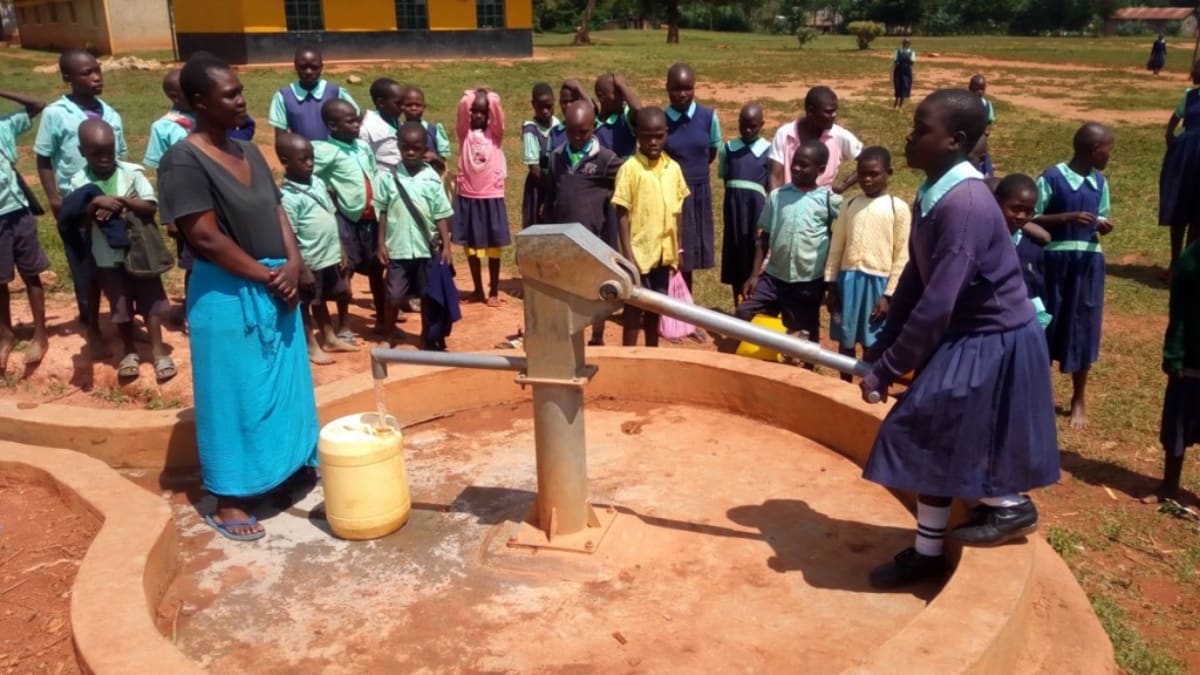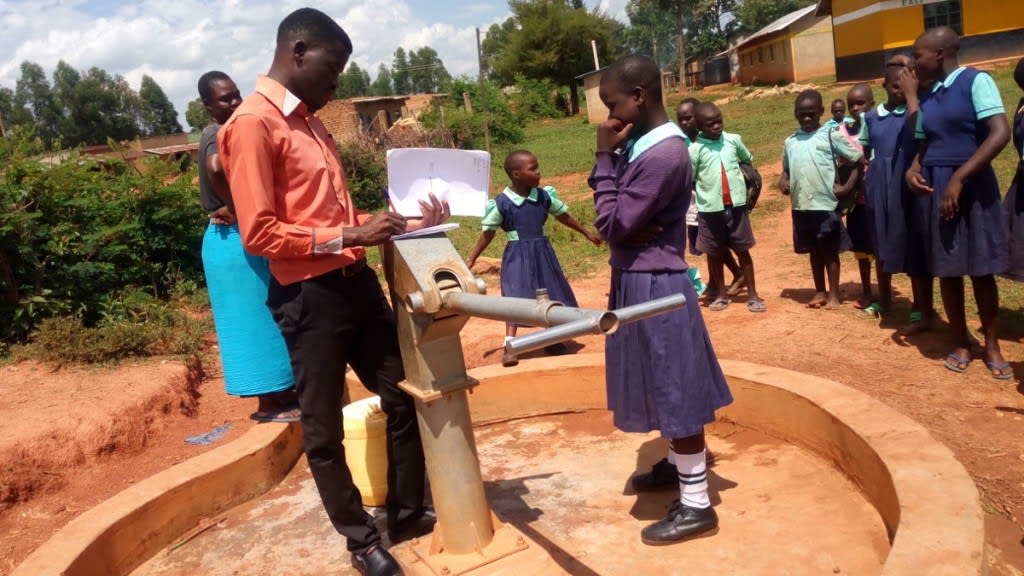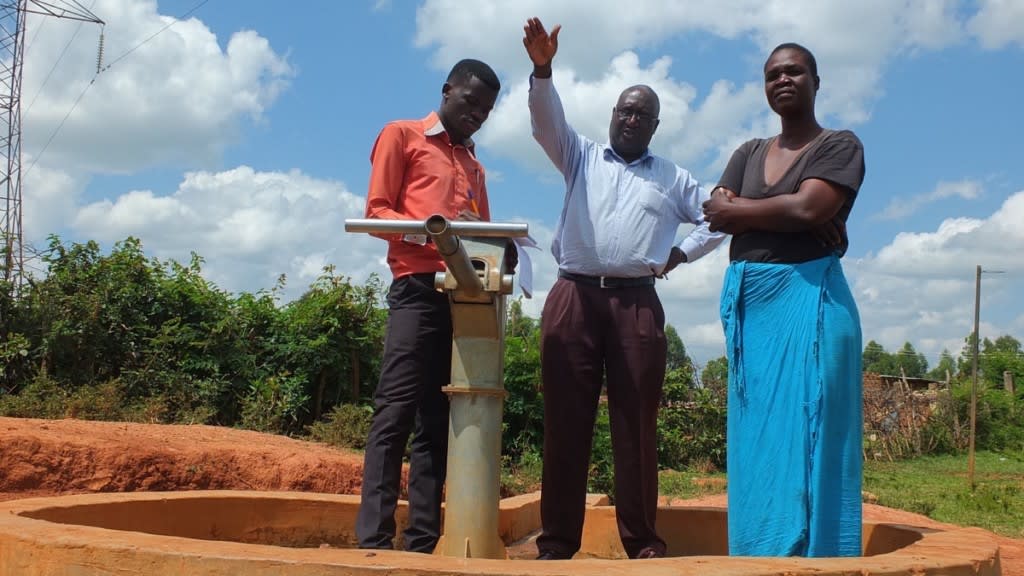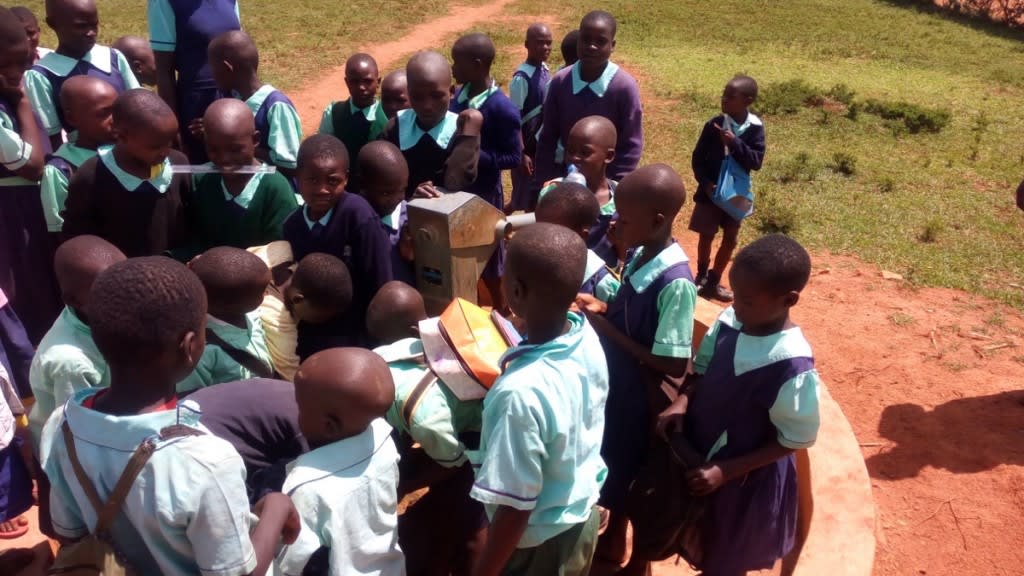This project is a part of our shared program with Safe Water and Sustainable Hygiene Initiative (SAWASHI). Our team is pleased to directly share the below report (edited for clarity, as needed).
Welcome to the School
Nguvuli Primary School is located in the center of Nguvuli Community. It is sponsored by the Friends Church Quakers. Most of the 700 students are local, so they can walk to school each day. (Editor's Note: While this many students may have access on any given day, realistically a single water source can only support a population of 350-500 people. This school would be a good candidate for a second project in the future so that adequate water is available. To learn more, click here.)
In 1989, the Kenya Finland Company drilled a borehole within the school compound because they noticed the students and staff had to leave in search of water. The neighboring community didn't have a water source either, and so both school and the community found relief in a new source of water nearby. This borehole served the people in this area for several years, but unfortunately was recently vandalized. Now, the pump is missing and the locals have been forced to return to other sources of water.
Water Situation
By the time the borehole was vandalized, people in the area had a few other water sources. One is a small rainwater catchment tank installed next to one of the school classrooms, restricted for school use only. The other source is a hand-dug well that is accessed by a hatch. This water source has no pump, so a bucket is lowered with a rope. As the pictures show, one of these buckets has already fallen into the well and contaminated the water. Since the well's water is not protected by a complete well pad and cover, it is open to contamination from many different sources.
The catchment tank is not an adequate source of water for 700 students, and the unprotected well is not a safe source. With a rehabilitated borehole, students, staff and the community will once again have an ideal, clean source of water.
We also observed that the containers people use to fetch water are not clean. These dirty containers further contaminate water intended for drinking. Because of the problems described above, locals often suffer from waterborne diseases such as typhoid and cholera, and students are often out of school because of these illnesses.
Sanitation Situation
The sanitation facilities on school grounds are in decent condition. There are 18 pit latrines that all have doors, and are all cleaned on a daily basis. The school also has a garbage pit out back, and dish racks for the children to dry their utensils.
The issue here is the lack of hand-washing stations. Clean latrines make no difference if students are using the bathroom but not washing hands. There has been poor academic performance at Nguvuli Primary School because of both waterborne disease and communicable disease, the latter of which can be prevented with proper hand-washing. Teacher Maggy Mbone, whose picture is in the "See Photos & Video" section, told us that "the school lack hand-washing point. Hence, often outbreak of diarrhea and typhoid diseases in the school, making most students to be absent. This has led to poor performance."
Plans: Hygiene and Sanitation Training
Teachers and students will be trained for two days at the school compound. The facilitator will use the CHAST (Children’s Hygiene and Sanitation Training) method to help students discern between good and bad hygiene habits. Students will be taught how disease is spread at home and at school, and how to prevent this. An entire session will be devoted to teaching students when to wash hands and how to do it properly. Students and staff need to be aware of how dirty hands are spreading illness.
Plans: Hand-Washing Stations
Two hand-washing stations will be delivered to the school so that students can wash their hands after using the latrine and before eating. The school will make sure that these are filled with water and that a cleaning agent is always available.
Plans: Well Rehabilitation
We plan to rehabilitate the well drilled by Kenya Finland Company in 1989. That well served both the school and community many years until it was vandalized. It has always had adequate water, even through the drier seasons. We measured the total depth to be 47 meters with a static water level of 15 meters.
The rehabilitation process will include material collection, pad reconstruction, flushing, test pumping, water quality testing, water treatment, and then pump installation. The new pump will be an AfriDev, since it is easy for student to use and parts for repair are easily acquired. Special care will be taken with well pad construction to make sure that there is no flooding. If stagnant water collects on the well pad, contamination can find its way through to the drinking water.
By the end of training and project implementation, Nguvuli Primary School will have a strong water user committee made up of parents and teachers who will oversee and maintain the rehabilitated well. They have a heart to ensure the well continues to serve generations to come. Without clean water and good health, education cannot be a priority.

 Protected Dug Well
Protected Dug Well























